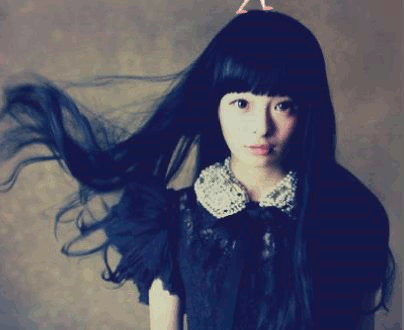Murakami is one of the most beloved contemporary authors of this century. All of his books, especially this one, are raved about. I was so excited to read this one when I found it in a cute bookshop next to where I worked. Having just finished it, I have to ask: why the fuck was it so long?
I will not exaggerate when I say that I was struggling to finish this book. Normally, I don't take this long (around 3-4 months) to finish a great book, especially when it's summer and I have unlimited time, but I'm talking about great books. 1Q84, in my opinion, is NOT a great book.
Here's my little book review in terms of the themes/motifs/ideas that I was actually either really confused about and/or was irritated about.
Little People
Who are they? Why are they so powerful? Why do I imagine smurfs when I think of them? It really doesn't help when they're described as having faces that "look ordinary but once you look away you can't remember them." The confusion mainly stemmed from the fact that they were never truly explained nor anything about their nature were revealed that made sense in the end. The entire plot revolved around them, yet no revelation happened. I did NOT read 1000+ pages for that. What the heck?
Fuka-Eri

She's this weirdo who the main character can supposedly trust but also at the same time is one person who led him into danger. I'll deal with it since I think her odd character will be explained at the end. Nope. She's just this weirdo who later disappears conveniently (instead of dying or knowing anything about her life afterward) and she's never thought of again. The main character kept on thinking about her words and her weird actions and the author seemed to give them a lot of significance. If she won't ever resurface or have anything about her revealed, why is this?
Ushikawa

I hated this character. So inconvenient and so disgusting. His chapters (near the end of the novel) were those that I detested reading and had such a hard time reading through. He is just some arrogant guy decides that he's so smart (but unfortunately so lonely that he can't even admit that to himself) who hides away in the shadows of the novel. Murakami kept on saying this phrase: "Most people would hate x, but Ushikawa didn't mind it. In fact, he welcomed it." I didn't care if he welcomed it 24 times throughout the novel. It showed nothing of his character.
(The white little man in the gif is how I pictured him)
Tengo's Parents
Tengo's existence is a mysterious one and it is well noted from the beginning of the novel. Murakami writes that Tengo didn't know much about his parents, hated his father, and knew that his mother was gone. Towards the end, we see more of his father, who later dies, and is revealed that his mother died after leaving his father when Tengo was born. Interesting. But, as the novel begins to close, I soon was aware that I still don't know anything about how Tengo came to be. The father dies and gives him a ~mysterious~ envelope filled with papers and photos. Still, it doesn't really reveal how Tengo is Tengo. Why bother talking about an old man who clearly didn't care too much for his son?
Domestic Violence

Aomame and the dowager are connected through their pains of witnessing the aftermaths of domestic violence. For Aomame, it was the abuse of her close and only friend and the dowager, her daughter. The pains depicted were understandable and their project together of killing off abusive men seemed comprehensive (in a fictional world). It seemed to be one of the stronger themes that would, later on, entangle itself as part of Aomame's loneliness, but it didn't do much. Their connection later only became a convenient thing for Aomame to locate her lover of 20 years, Tengo Kawana. I was kind of disappointed, as I thought by introducing this theme, Murakami was making a more important point.
Loneliness

This is something that is constantly being explored and present. But, I felt it as something annoying and vacant instead of a deep void that becomes an important motif for the reunion of the two main characters, Aomame and Tengo. I usually love how authors convey loneliness because it's (kind of) different for everyone. Murakami placed it in his characters so indirectly that I just thought the characters were boring as hell. I was just thinking that they didn't have much ambition or passion except to find themselves in this new 1Q84 world, until one of them said that they were "lonely for too long." Then I realized why they were so boring. They never recognized that they were lonely but only at the end when seeing each other. View that as an emotional tenderness, but I don't understand how someone can misunderstand their own loneliness.
Tengo's Older Girlfriend

I understand now that this character's role was to depict Tengo's everlasting loneliness, since he never really felt emotionally attached to any women or his older girlfriend. But did the author really need to be explicit about how she "held his balls while listening to old jazz" and "gripped them tightly when her favorite part came?" What? That's my pet-peeve about her and the novel: the random explicit descriptions of sex. If Murakami was trying to show the pure physical sides of sex and intimacy, I think he succeeded. But in the end, it had no meaning.
Weird NHK Fee Collector
This part was tense and scary. I could imagine being in an apartment alone and having some random dude knocking as loudly as that, especially if I killed someone important. I thought this was leading me to the climax of the plot, as this character or voice or whatever appeared in both Aomame's and Ushikawa's apartment. Literally, nothing explained why the voice existed or who it was. (Even though I have a suspicion it's Tengo's father's ghost. Even then, why?)
The Ending
So Aomame and Tengo finally meet after 20 years in this strange world, 1Q84. Aomame is pregnant and they're finally lovers together. Great. The only storyline I actually cared about. Then they leave 1Q84 and return to the normal 1984 and go to a hotel and sleep together. One thing I did notice about Murakami was that he loves being very explicit in some sex scenes, which don't bother me too much, but I still have some questions. After 20 years of not seeing your literal true love, how does that ease and casualness exist between two people? Also, the dialogue about the sizes of Aomame's breasts were kind of weird and I didn't understand much of it. If the author was trying to depict intimacy, I didn't feel any of it. In the end, it was a disappointing and all-around very boring ending.
There you have it. My rant about Murakami's 1Q84 novel. I'm sure there's a lot of people who enjoyed it, which is great, but to me, it lacked depth and certainty in its characters and plotline. I felt as though things were stagnant when it was actually accelerating and that the author was trying to focus on a lot of things at once. The book's narrative was rich but when it came to the characters' thoughts and actions, it felt like the beginning of Albert Camus's The Stranger. It was very choppy and not comprehensive (in terms of the long term storyline). If I didn't have the entire 1000+ page book, I probably wouldn't have bothered to finish it until the very end.
But don't let my review scare you from enjoying it. It's just one opinion out of the many.





















